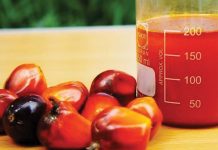In a bid to boost agriculture and promote commodity exchange in Nigeria, the Securities and Exchange Commission (SEC) is set to roll out various initiatives to provide an enabling environment for commodities trading in the country.
Already, the Commission is reviewing the Warehouse Receipt Bill currently before the National Assembly and has assured that it will actively advocate its passage.
This is in support of the policy thrust of the Federal Government to encourage investments in the agricultural and solid minerals sectors in a bid to ensure economic diversification and deepen capacity across the agricultural value chain.
Director General of SEC, Mounir Gwarzo said this while delivering a Keynote address at a Training Seminar organized by Africa Exchange Holdings (AFEX) on Commodity Trading and Risk Management in Abuja.
He said the 10-year capital market master plan which the Market is currently implementing is the blueprint for the growth and development of the market over the next decade and acknowledges commodities exchanges as critical for enabling investment diversification, risk management, price discovery and transactional efficiency and expressed strong belief that to boost Nigeria’s competitiveness, a thriving commodities trading ecosystem must be developed.
The DG said “We believe this can be achieved by implementing the following strategic initiatives: Build a supporting and functional ecosystem for commodities trading;
“Others are: Build Centre of Excellence in areas of comparative advantage such as for oil & gas, cocoa, etc Develop efficient commodities exchanges and trading platforms, Sponsor legislation to ensure Nigeria’s crude oil sales are traded on local exchanges and build capacity in commodities trading at the SEC and among market operators.”
He said that as Nigeria pursues policies aimed at diversifying the economy, creating jobs and hastening socioeconomic development, it is becoming increasingly clear that Commodities Exchanges can play a crucial role in actualizing these lofty objectives as a detailed empirical study by the United Nation’s Conference on Trade and Development (UNCTAD) analyzed the impact of commodities exchanges on development in emerging markets.
Gwarzo said Countries that were part of the study are also emerging countries with the most vibrant commodities markets such as India, Brazil, China, Malaysia and South Africa. Among the many insights in study’s report is the fact that commodities exchanges play a central role in facilitating economic development especially by helping farmers to enhance their marketing and risk management capacity (such as reducing their exposure to price and other production risks).
Nigeria he said, ranks number one (1) in global export rankings for commodities such as kolanut, shea nuts and shea butter, cassava, and yams and also feature in top exporters for other commodities such as cocoa, rubber, oil palm, cashew and sesame seed.
“Our ginger is reputed to possess the best aroma in the international markets. Export opportunities also exist for a wide variety of other agricultural commodities. This simply magnifies the potential of our agricultural sector to contribute significantly to economic growth and development” he said.
The DG said that considering the important role commodities exchanges will play in advancing Nigeria’s economic diversification goals, the capital market community has taken steps to prepare the stage for vibrant commodities exchanges to emerge in the country.
Gwarzo commended Afex for organizing the Seminar and assured that the SEC will support any laudable initiative aimed at enhancing the capacity of the Capital Market to develop a robust ecosystem for commodities to thrive.













